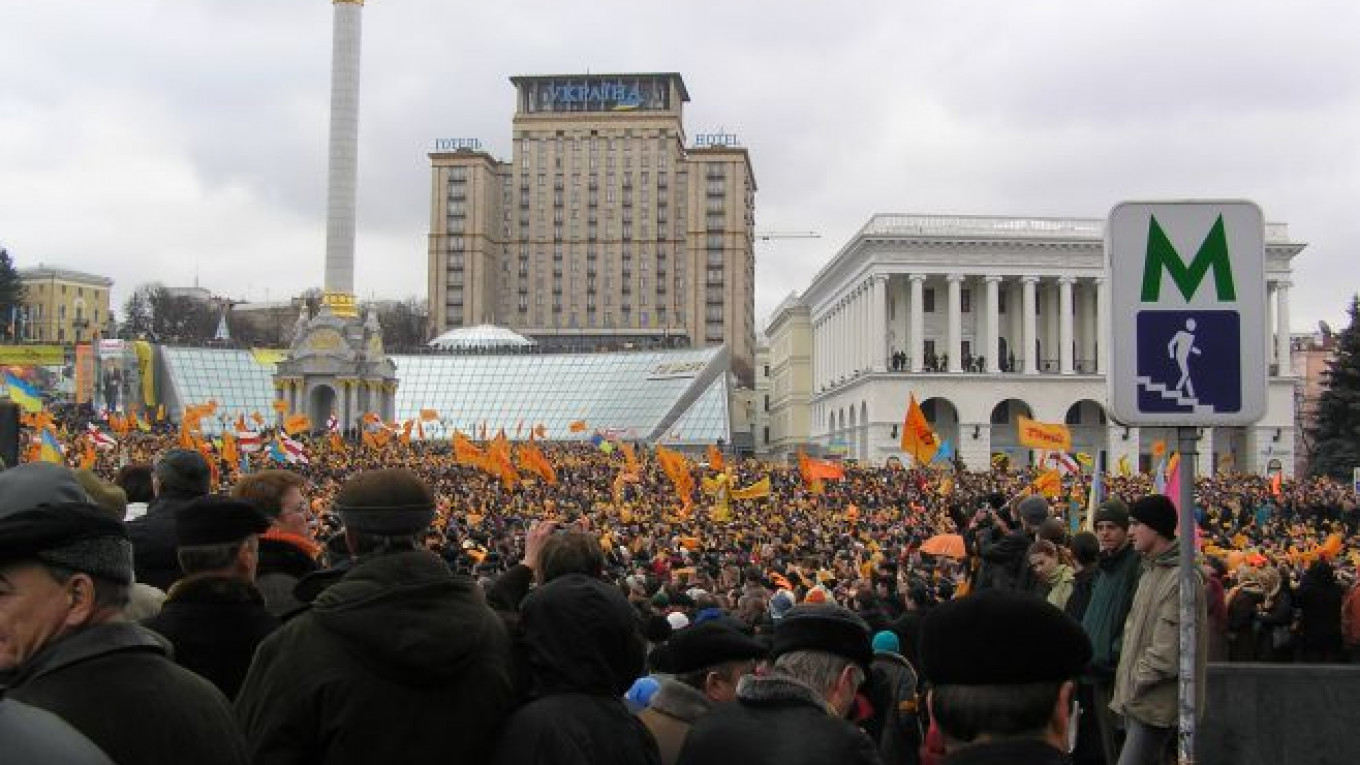In a bid to prevent any repeats in Russia, the Defense Ministry announced plans to commission a research project on the theme of color revolutions, which rippled across the post-Soviet space following the collapse of the Soviet Union, Interfax news agency has reported.
"Some say that the military should be sidelined and not included in political processes; others say the contrary. We will fund a study," Defense Minister Sergei Shoigu said Friday with regard to color revolutions, Interfax reported.
"We have to understand how to prevent [revolutionary activities] and how to educate our young so they will move in the right direction," Interfax quoted Shoigu as saying.
"Color revolution" is a term used to describe popular uprisings such as Georgia's 2003 Rose Revolution and Ukraine's 2004-05 Orange Revolution. The Kremlin has repeatedly accused the West of meddling in these countries' internal politics in an effort to undermine Moscow's interests.
Major General Mikhail Smyslov, the head of army personnel, reiterated his ministry's position on the matter in an interview with the Russian News Service on Saturday, saying that color revolutions were an enduring threat to the country.
"Recent events have shown that these threats are absolutely real and long-lasting," the Russian News Service quoted Smyslov as saying. "Naturally, we have to understand how these threats are repelled, how their damage can be reduced."
Russian officials have been contemplating the study of color revolutions for some time. In March, a research body associated with Russia's Security Council was set to recommend the adoption of measures to prevent the "destabilization of the internal political situation," Kommersant newspaper reported at the time. One of recommendations, according to Kommersant, was to quash the romanticization of revolution in the country.
The term "color revolution" has also slipped into President Vladimir Putin's lexicon.
In March, Putin ordered Interior Ministry officials to smother any budding color revolutions in the country by engaging in "preventive work."
"We see attempts to use so-called 'color revolution technology,' ranging from organizing unlawful public protests to open propaganda of hatred and enmity on social networks," Putin said in March during at an expanded session of the Interior Ministry Board, according to the Kremlin's website. "The aim is obvious — provoke civil conflict and strike a blow to our country's constitutional foundations, and ultimately even at our sovereignty."
At a Security Council meeting in November, Putin also warned that color revolutions in post-Soviet states should serve as a "lesson and warning," and that "everything necessary" should be done to prevent them from happening in Russia.
Moscow has also been wary of the prospect of color revolutions abroad. Last month, Russia's Foreign Ministry accused "Western organizers" of attempting to foment a color revolution in Macedonia, a former Yugoslav republic grappling with a major political crisis.
Contact the author at g.tetraultfarber@imedia.ru
A Message from The Moscow Times:
Dear readers,
We are facing unprecedented challenges. Russia's Prosecutor General's Office has designated The Moscow Times as an "undesirable" organization, criminalizing our work and putting our staff at risk of prosecution. This follows our earlier unjust labeling as a "foreign agent."
These actions are direct attempts to silence independent journalism in Russia. The authorities claim our work "discredits the decisions of the Russian leadership." We see things differently: we strive to provide accurate, unbiased reporting on Russia.
We, the journalists of The Moscow Times, refuse to be silenced. But to continue our work, we need your help.
Your support, no matter how small, makes a world of difference. If you can, please support us monthly starting from just $2. It's quick to set up, and every contribution makes a significant impact.
By supporting The Moscow Times, you're defending open, independent journalism in the face of repression. Thank you for standing with us.
Remind me later.






